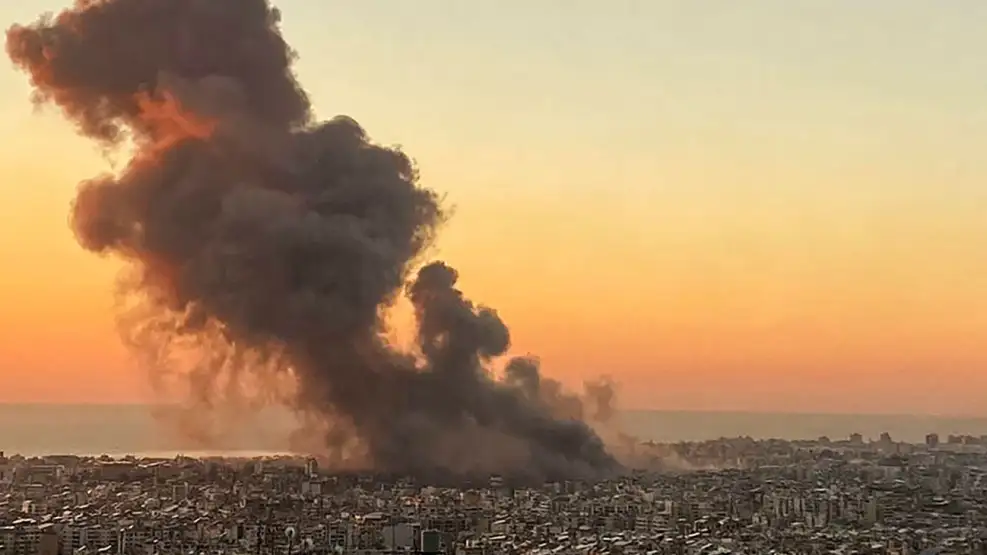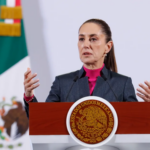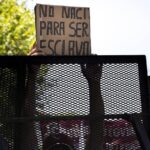
Not since the 2006 war have Beirut’s southern suburbs been subject to such a brutal attack by the Israeli army, which has already hit the city several times this week.
The first news indicated that the head of Hezbollah, Hassan Nasrallah, had escaped the assassination attempt, but in the last hours both Israel and Hezbollah confirmed his death. The fate of other senior officers is still unknown. In an apocalyptic environment, rescue teams work in the southern suburbs, searching for bodies buried under the rubble.
On Friday night, new Israeli bombings were reported on the Lebanese capital.
Smoke can be seen over Dahieh, Beirut as the area was hit again pic.twitter.com/7Fr46zQxpl
— Nafiseh Kohnavard (@nafisehkBBC) September 27, 2024
The attacks occurred hours after Benjamin Netanyahu’s speech to the United Nations (UN), in which the Israeli Prime Minister rejected any ceasefire and indicated that he would continue his attacks against Lebanon. During that speech, the majority of those present in the main room of the UN left, showing that the Israeli government has fewer and fewer allies in its criminal offensive that continues in Gaza and extends to Lebanon.
The Argentine government of Javier Milei is one of the few that continues to show its unconditional support for Israel, while the United States, France and other powers, which have acted as allies of Israel, asked the Netanyahu government to abide by a ceasefire. These claims do not prevent the United States from continuing to finance the Israeli war machine.
A few days ago, Israel received an $8.7 billion aid package from the United States to support its ongoing military efforts and maintain a qualitative military advantage in the region. The announcement followed talks between Israel’s Defense Ministry Director General Eyal Zamir and US Acting Undersecretary of Defense for Policy Amanda Dory, according to Israel’s Defense Ministry.
The Israeli army said the target of the attack was Hezbollah’s headquarters in the southern suburbs of the city, near the Rasoul al-Aazam hospital, near the Beirut airport. In a second statement, the Israeli military said that Hezbollah leader Hassan Nasrallah was there at the time of the explosion and was the main target of the attack. The death of leader Nasrallah was finally confirmed; This attack could have regional repercussions and prompt Hezbollah to respond with less restraint.
In view of the explosions, the Israelis used powerful bunker-buster ammunition, capable of hitting targets inside residential buildings. Images from the bombing site already give a terrifying idea of the magnitude of the destruction.
Israel’s offensive in Lebanon opened a new situation in the Middle East, the contours of which are not yet defined. Is it inevitably going to the third war in Lebanon? Will there be any response from Iran? Does Netanyahu have a strategy or is this another tactical move? These are questions that for now do not have categorical answers.
A few days ago in a highly anticipated message, Hezbollah leader Hassan Nasrallah did not give too many details about how the organization would respond to such an attack. In his message, Nasrallah recognized the impact of the blow received – “the greatest in terms of security and humanity, unprecedented in the history of the resistance in Lebanon,” he said. Although he also assured that the coup did not weaken the group’s resolve and defined the war as a “cycle.”
From a political point of view, Netanyahu hopes that the offensive will allow him to recompose his government, which faces a crisis due to explicit differences between the military commanders with the objectives of the war in Gaza, divisions in the cabinet, particularly with the defense minister. Y. Gallant, who synergizes with the “street”, who rejects his policy of refusing to negotiate the release of the hostages who still remain in the hands of Hamas, and which manifests itself in massive waves of intermittent mobilizations. The last mobilization demanding an immediate ceasefire was on September 2 when hundreds of thousands came out to condemn Netanyahu for the execution of six hostages in Gaza. The protest included an 8-hour general strike called by the Histadrut, the Zionist trade union center. The limit of these protests is that within the framework of a turn to the right in Israeli society, no significant sectors have emerged that question the colonial project of the Zionist state.
The survival of Netanyahu’s government (and therefore his personal freedom) is inextricably linked to his partnership with far-right religious and settler parties, that is, to the continuity and eventual expansion of the war. As the objective of “eradicating Hamas” is a chimera, Bibi oscillates between the most ultra sectors that push for a kind of “final solution”, that is, the expulsion of the Palestinian population from Gaza and the West Bank, and a moderate version of this same strategy that involves militarily reoccupying some areas of the Gaza Strip, as it is apparently trying to do now in the north of the region.
Source: www.laizquierdadiario.com

